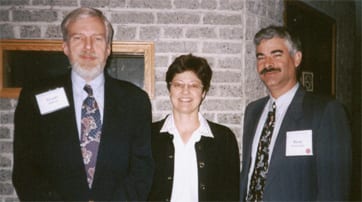A Panel Discussion at the annual meeting of the
International Society for the Systems Sciences
Toronto, Canada
July 16-22, 2000

| The year 200 computer problem became the largest technical project in human history, the largest management challenge since World War II, and the largest example of peacetime cooperation in history. The effort was highly successful. Email and the web were crucial to the success. No challenge in half a century produced so much team-building, action, and preparation from families to the United Nations. New organizations and networks were formed to share technical information and to prepare for possible disruptions. Professional associations were used both to distribute technical information and to gather information about readiness. One result is a new awareness of the vulnerabilities of information societies. A great deal has been learned about the resilience of our infrastructure. However, the academic community has not paid much attention to Y2K. This panel will review what the dangers were, what actions were taken, what failures occurred and what has been learned that can help us both in managing information technology better in the future and in working to solve other global problems. |
List of Papers
Why the Century Date Change Occurred So Smoothly
Stuart Umpleby, The George Washington University, Washington, DC.
Lessons from Y2K for Strategic Management of Information and Communication Technology (Slides)
Mark Haselkorn, University of Washington, Seattle, WA.
The Y2k Issue and Implications for Future International Cooperation on Information Infrastructure Security (Slides)
Olivia Bosch, International Institute for Strategic Studies, London, and Center for Global Security Research, Lawrence Livermore Laboratory, CA.
Y2k – “Seven Months After”- Two “Double Binds” and A “Double Blindness”
Karl Mueller, Institute for Advanced Studies, Vienna, Austria.
Content Analysis of Email Responses to Questions about Y2K
Arne Collen, Saybrook Graduate School, and Stuart Umpleby, The George Washington University.
Picture
From left to right:
Stuart Umpleby, Olivia Bosch, and Mark Haselkorn.
